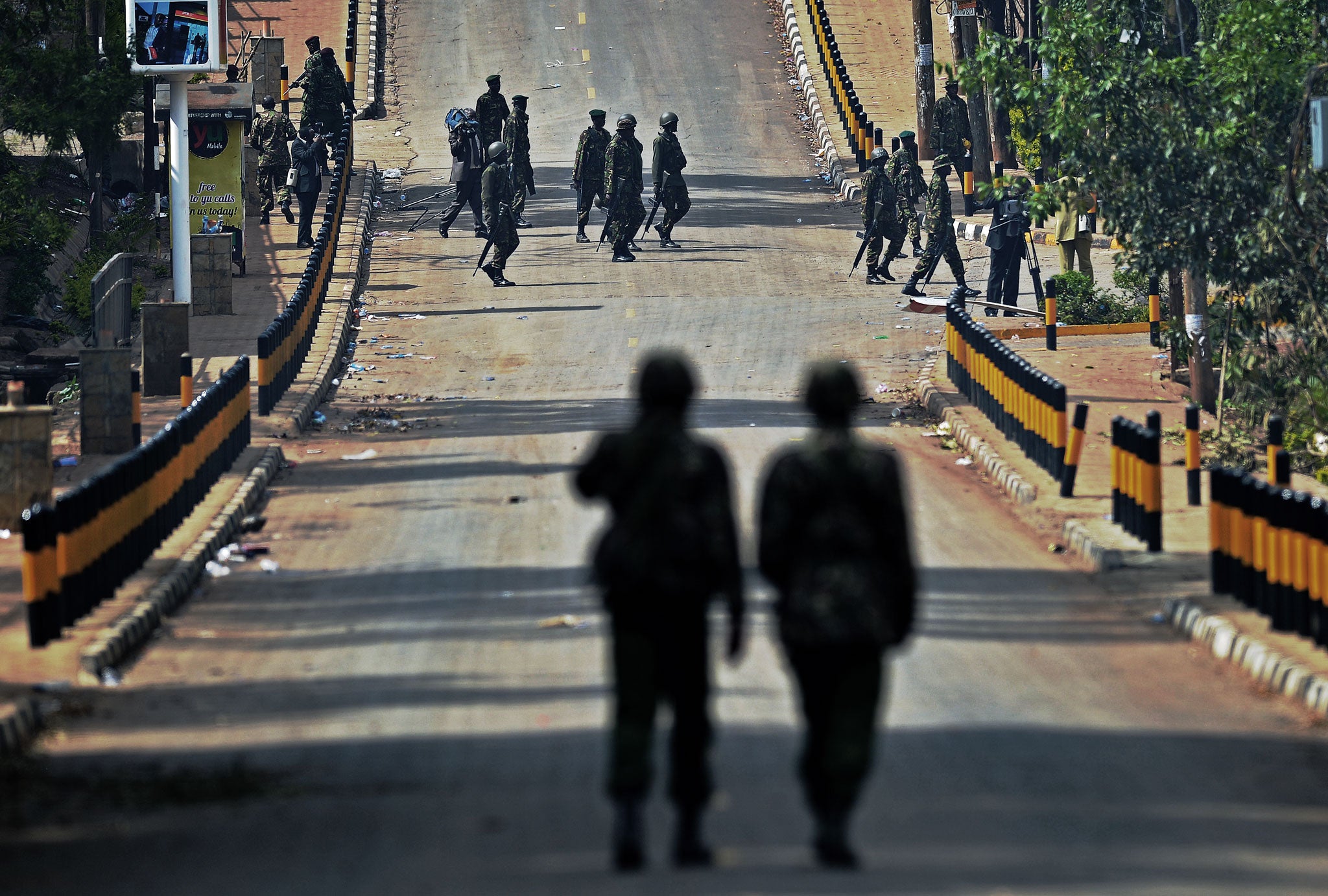Two Kenyan buses hit by blasts in Nairobi
Casualties are feared in the third attack in the country in two days

Your support helps us to tell the story
From reproductive rights to climate change to Big Tech, The Independent is on the ground when the story is developing. Whether it's investigating the financials of Elon Musk's pro-Trump PAC or producing our latest documentary, 'The A Word', which shines a light on the American women fighting for reproductive rights, we know how important it is to parse out the facts from the messaging.
At such a critical moment in US history, we need reporters on the ground. Your donation allows us to keep sending journalists to speak to both sides of the story.
The Independent is trusted by Americans across the entire political spectrum. And unlike many other quality news outlets, we choose not to lock Americans out of our reporting and analysis with paywalls. We believe quality journalism should be available to everyone, paid for by those who can afford it.
Your support makes all the difference.Two buses travelling along a busy highway in the Kenyan capital, Nairobi, have been struck by explosive devices thrown at them – in the third attack to occur in the country over the weekend.
Casualties are feared, but there was no word on numbers, local media and police said on Sunday.
One of the explosions ripped open the side of a bus, the BBC reported, citing NTV. A rescue operation was underway.
On Saturday four people were killed in two attacks at a bus station and a luxury hotel in Mombasa.
No one has claimed responsibility for any of the three attacks, but Kenya has blamed the al-Qa’ida-linked Somali group al Shabaab for similar violence in the past.
The militant group carried out the attack on the Westgate shopping mall in Nairobi last September, which killed at least 67 people; there have been a string of further incidents since then.
The Kenyan coast's large Muslim minority, many of whom feel marginalized by the government, has been a fertile recruitment ground for Islamist militant networks.
Kenya sent soldiers into Somalia in 2011 to try to drive out al Shabaab, which it sees as a threat to its own borders and security.
President Uhuru Kenyatta has said the tourism sector was “on its knees” due to attacks by the militants who want Kenyan troops out of Somalia. Kenyatta has rejected their demands.
Additional reporting by Reuters
Join our commenting forum
Join thought-provoking conversations, follow other Independent readers and see their replies
Comments